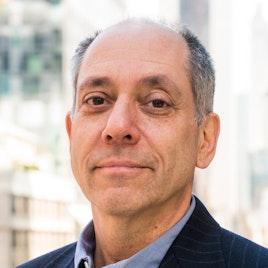Vietnam Says Goodbye to Sex Worker Detention
By Daniel Wolfe
The Vietnamese National Assembly recently concluded its debate on whether it made sense to detain thousands of sex workers in so-called rehabilitation facilities where they were held without right of appeal and forced to work (including for private companies) without pay. In a vote of 70 percent in favor, and 30 percent against, the National Assembly moved to close these useless and punitive institutions. Justice advocates, UN experts, and people with HIV and those who care about them are hoping that drug detention centers in Vietnam will follow soon.
The closure of sex worker detention centers is part of a larger Vietnamese reform to improve due process and decrease the arbitrary and prolonged nature of punishments for administrative, rather than criminal, violations. Many actors—including Vietnam’s Ministry of Justice, the Department of Social Evils Prevention (charged with addressing sex work and drug use in Vietnam), UNDP, and National Assembly members—have been involved in the reexamination of the law, with sometimes heated debates. One female member of the National Assembly reportedly suggested that if the government was so interested in prolonged detention as a solution to sex work, then perhaps clients of sex workers should also be detained. This suggestion was greeted with little enthusiasm from the male representatives in attendance.
For Vietnam’s drug users, some 30,000 of whom remain detained in forced labor facilities, there are also positive—if less bold—signs of progress. The government has pledged not to build more detention centers and to reduce by half the number of those detained, instead supporting “community-based” treatment. The new administrative detention law includes a pledge to increase due process for those held for drug violations, though even these improvements will take years to come into force. Meanwhile, community-based options such as methadone treatment for those dependent on heroin are gaining clients and supporters, including among police and physicians who have seen how well they work. Drug user groups are forming support networks and showing that they can work more effectively than detention center staff to inspire change and get people jobs.
The history of AIDS is full of policy shifts that make ideas that once seemed impossible into approaches we regard as essential and appropriate. HIV drugs were once considered too expensive to give to people in poor countries. There was no such thing as a Global Fund to fight the epidemics of AIDS, TB and malaria. Detention centers that offer nothing but punishment, interrupt HIV treatment, and expose people to violence, forced labor, and multiple health risks are part of a bad old world, one that Vietnam has now moved to put behind them when it comes to sex work. As the heads of 12 UN agencies have already affirmed in a joint statement, closure of detention centers for drug users could, and should, be next.

Until December 2021, Daniel Wolfe was director of the International Harm Reduction Development Program at the Open Society Foundations.


